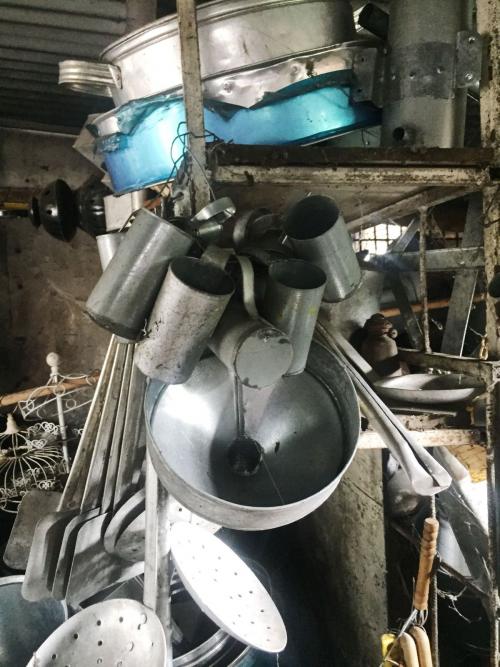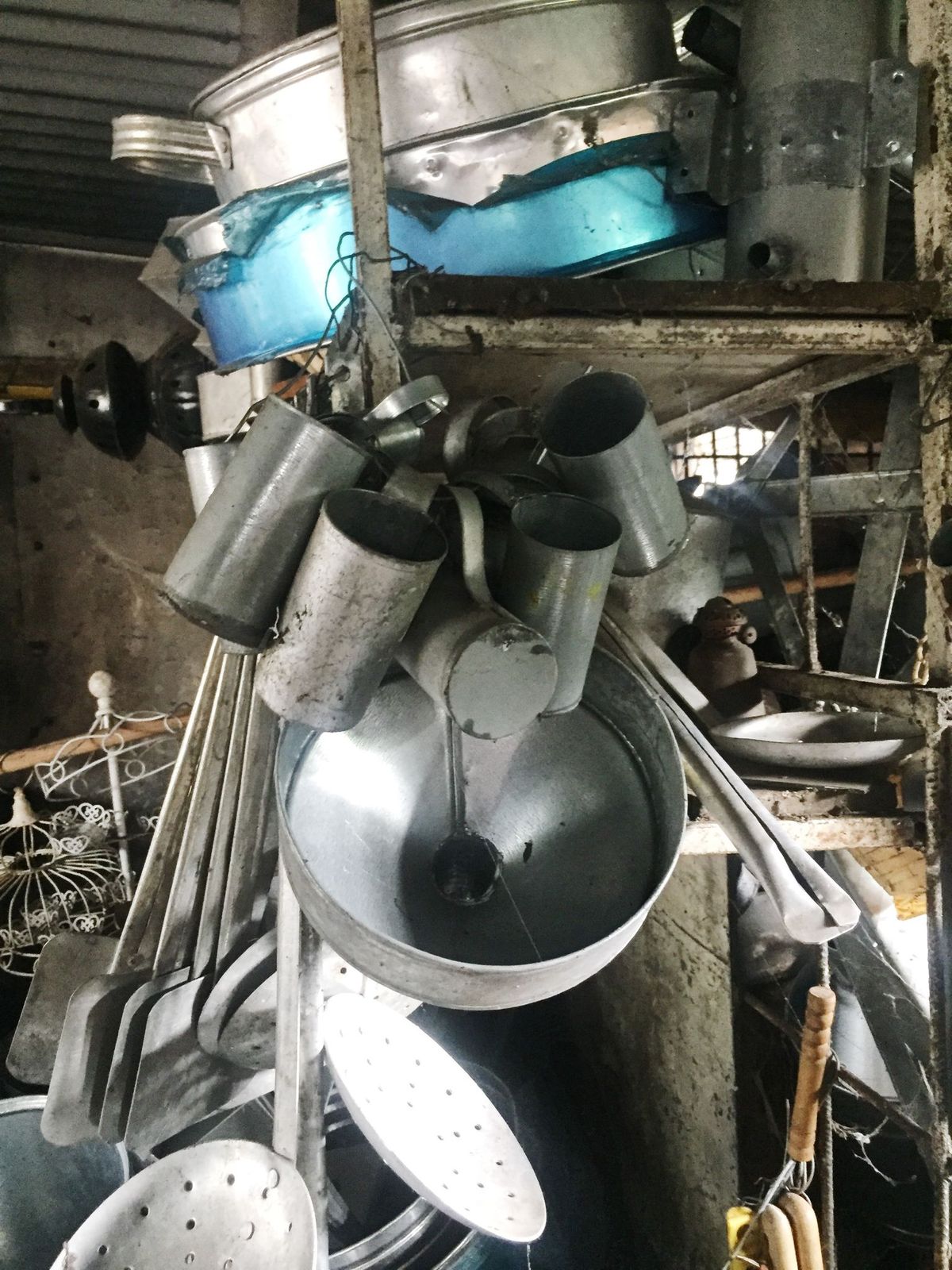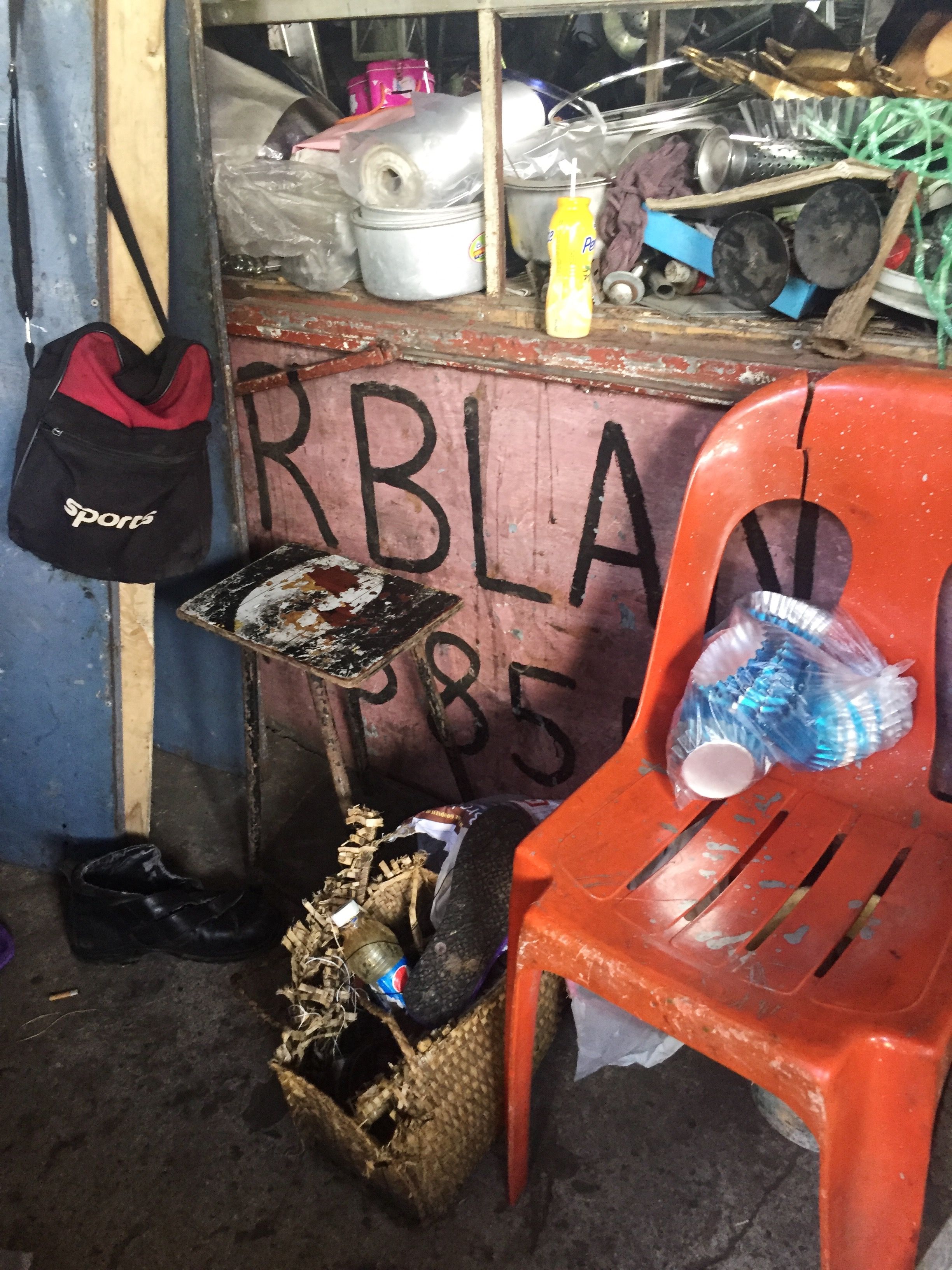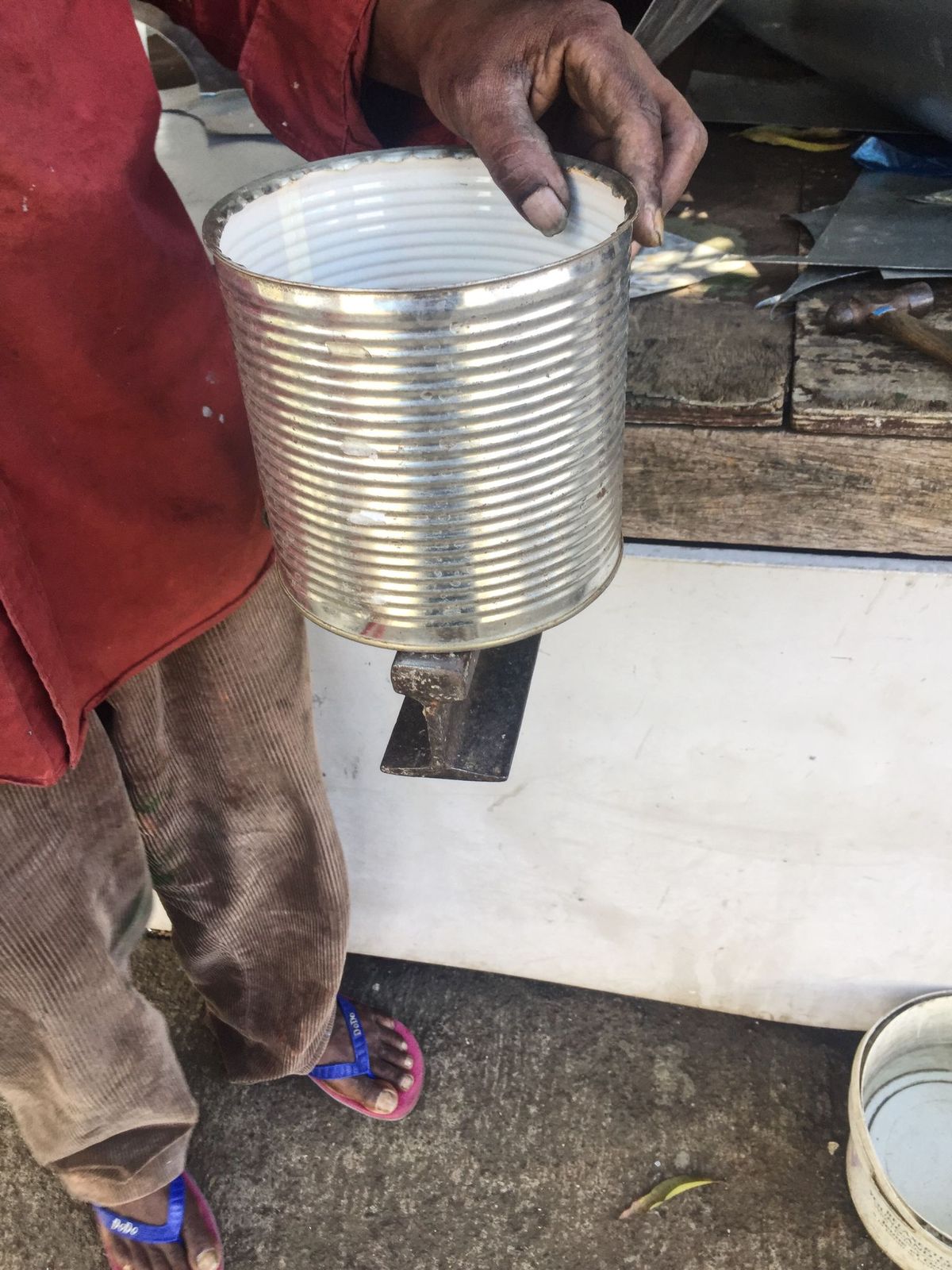
Bus trip N° 52 to Bambous - The Tinsmith
The encounters with a tinsmith, a retreated postman, an old hairdresser from yesteryear, a shoemaker whose atypical workshop reminded me of that of Geppetto (Pinocchio's father) made this day another incredible moment of adventure and learning.
Bus Trip No 52 - Bambous
We roamed all around Bambous, passing through a very quiet area called Geoffroy. What we discovered that day, is a well developed little town with all necessary facilities, which has however, still kept nature alive. Rivers filled with Tilapia fishes, streams and canals cross in between modern buildings like colleges, shops and houses. The encounters with a tinsmith, a retreated postman, an old hairdresser from yesteryear, a shoemaker whose atypical workshop reminded me of that of Geppetto (Pinocchio's father) made this day another incredible moment of adventure and learning.
The Tinsmith of Bambous
Mr Siven, like many other artisans we have met throughout our adventures at my Moris, learnt this craft when he was still a young boy. In 1994 when his workshop in Boundary was destroyed by cyclone Hollanda, he was discouraged and ceased his activities. It is only eleven years later that he felt the determination to re open, but this time in Bambous, a village in the west of Mauritius.
Located on a main road that links the capital city to the Southwest of the island, Mr Siven's workshop is comparable to Ali Baba's cave. As we reached the place, our eyes were immediately lured by the finished products exposed on shelves, placed on the side of the pavement. A lady was painting watering cans with an aluminium based paint. We could perceive through the door, a middle aged man sitting quietly and repairing slippers.
Rare objects that we never saw, or we barely see nowadays or we didn't even knew existed, were lying around all across the little store. From buckets and "kandi diri" (spoons used to cook and serve rice) to muffin moulds and "boullettes" steamer (Chinese dumplings) this place could be termed as a cultural mess.
In a little corridor that separates the store and the pavement, an oven placed on a table is used to melt the metal strips used for welding. The oven is called a "primis". Although it's such a small space, the workshop offers so much to observe, question and wonder. We were about to leave, not before buying a little souvenir of course, when we noticed this historical object that is very familiar to us, lying on a table outside. Part of a railway track was being used as a tool by this Tinsmith.
Another interesting fact is that Mr Siven recycles cans from canned foods. The transformation is unbelievable. From pureed tomato cans, he was able to make watering cans and petrol lamps. Even if the mostly sold item remains the watering can, Mr Siven also has a variety of items such as cooking stoves, "poutou" maker (Indian sweets), "topet" cups (a sort of tequila shot glasses made of metal) , buckets and basins. Reparations are also part of his job.









